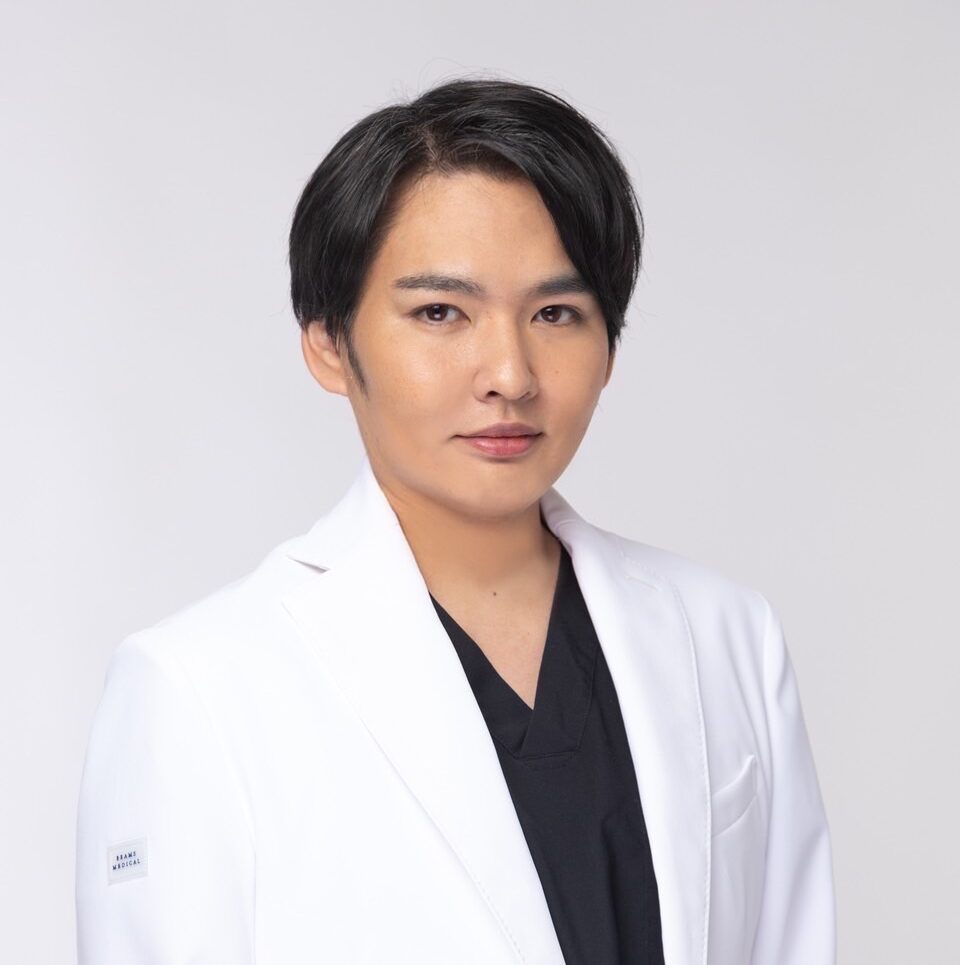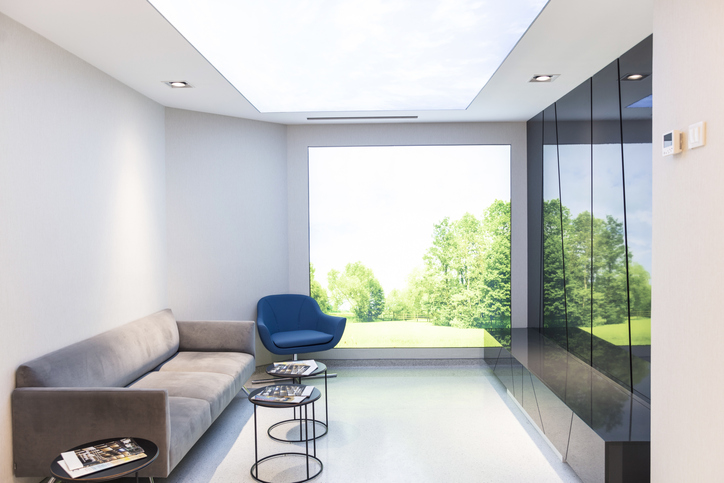Beauty is influenced from the inside out. The impact of daily stress on skin, hair, and even overall appearance is often overlooked. Here we offer a science-based guide to the specific effects of stress on beauty and how to cope with it. Begin your journey to explore knowledge and practical advice for healthy skin.

Graduated from the Faculty of Medicine, National Kumamoto University. After serving as the director of major beauty clinics in Japan, etc., he opened Aladdin Aesthetic Clinic in 2023. He is a professional in aesthetic medicine with a doctorate in anti-aging research and many years of experience. With the motto of "Toward the realization of cosmetic medicine without lies," he aims to be the "Only One" together with his patients.
Specific cosmetic effects of stress

Understanding the impact of stress on beauty, especially with regard to its effects on skin and hair, is necessary for healthy skin and hair.
Stress can have a significant impact on our skin and hair. Prolonged stress is known to be particularly detrimental to skin health. Increased stress can activate the skin's inflammatory response and cause a variety of skin conditions.
Effects on skin
The effects of stress on the skin are very extensive, and these effects are caused by physiological responses of the skin. Prolonged stress causes the body to overproduce the stress hormone cortisol. Increased cortisol stimulates sebaceous gland activity, which can lead to acne and other skin disorders. Stress can also weaken the skin's barrier function, which makes the skin more sensitive and more reactive to external stimuli.
In addition, stress can trigger an inflammatory response in the skin, which can lead to redness, itching, eczema, and other symptoms. The effects of stress on the skin vary from person to person and in some people can cause problems such as atopic dermatitis, dry skin, and even accelerated skin aging.
Effect on hair
Stress can have a serious impact on hair health. High levels of stress can affect the hair growth cycle and cause temporary alopecia. In this condition, hair growth enters an early resting phase and hair loss progresses.
Other hair problems caused by stress include poor hair quality and scalp problems (such as dandruff and dry scalp). If stress becomes chronic, these problems can persist over time. Stress-induced sleep deprivation and nutritional deficiencies can also negatively affect hair health and lead to hair loss and thinning hair.
Beauty! How to combat the effects of stress?

The solutions presented here are only basic measures to alleviate the cosmetic effects of stress. If you want to avoid excessive damage or obvious effects, we recommend that you seek professional advice and seek consultation and counseling at a cosmetic clinic.
Solutions for skin effects
| counter-measure | point |
|---|---|
| Stress Management | Relaxation techniques such as meditation, yoga, and deep breathing |
| skin care | Select products according to skin type, emphasis on moisturizing |
| Food and fluid intake | Balanced diet rich in vitamins and minerals, adequate fluid intake |
The approach to mitigating the effects of stress on the skin is based on three pillars: stress management, proper skin care, and a balanced diet and fluid intake.
Relaxation techniques, especially meditation, yoga, and deep breathing, are effective in reducing stress levels. It is also important to choose skin care products that are appropriate for the skin type and emphasize moisturizing, especially products for sensitive skin are recommended.
In addition, a balanced diet rich in vitamins and minerals and adequate fluid intake are essential for skin health. By taking these measures in a comprehensive manner, the effects of stress on the skin can be effectively reduced.
Solutions for hair impact
| counter-measure | Details |
|---|---|
| scalp care | Use of hypoallergenic shampoos and conditioners |
| well-balanced diet | Intake of nutrients (protein, vitamins, iron, etc.) necessary for hair growth |
| Adequate sleep and rest | Ensure a good night's sleep and get the rest needed for healthy hair |
Scalp care, a nutritionally balanced diet, and adequate sleep and rest are important in dealing with the effects of stress on the hair. It is important to use hypoallergenic shampoos and conditioners to maintain a healthy scalp.
It is also effective to ensure that your diet contains the nutrients necessary for hair growth, especially protein, vitamins, and iron. Finally, ensuring a good night's sleep and getting the rest necessary for hair health can help reduce the effects of stress on hair.
There are no shortcuts to beauty! Daily Life and Stress Management

Stress management, proper diet, exercise, and good sleep are very important in beauty. These support both mental and physical health and have a positive impact on one's appearance.
It is important to balance these factors for beauty and health. This section provides details on improving diet, exercise, and sleep quality in daily life and stress management as shortcuts to beauty.
Nutrients and foods that help reduce stress
| nutrient | effect | Food Examples |
|---|---|---|
| omega-3 fatty acid | Anti-inflammatory action, suppression of stress response | Salmon, tuna, walnuts, avocado |
| magnesium (Mg) | Muscle relaxation, support of cortisol metabolism | Avocado, banana, broccoli, dark chocolate, pumpkin seeds, spinach |
| protein | Maintaining blood sugar balance, stress management | Meat, fish, poultry, beans, lentils |
First, omega-3 fatty acids are potent anti-inflammatory and help reduce the inflammatory response in the body caused by stress. Omega-3 fatty acids are abundant in foods such as salmon, tuna, walnuts, and avocados, and regular consumption of these foods can help reduce stress-induced damage to the body.
Magnesium also helps with muscle relaxation and supports the metabolism of the stress hormone cortisol. This nutrient is abundant in foods such as avocados, bananas, broccoli, dark chocolate, pumpkin seeds, and spinach. Including magnesium-containing foods in the diet can help relieve stress-related tension and promote a state of relaxation.
Otherwise, protein is important for maintaining blood sugar balance, which helps manage stress levels. Foods such as meat, fish, poultry, beans, and lentils are good sources of protein. A balanced intake of these foods will help keep blood sugar levels stable and, consequently, reduce stress.
Relationship between lack of exercise, sleep quality, and beauty.
Exercise can strengthen the cardiovascular system and reduce levels of stress hormones. Regular exercise has also been proven to improve sleep quality and decrease the risk of insomnia and sleep apnea. This is because exercise promotes heart health and reduces feelings of stress and anxiety.
In sleep, its quality is extremely important. Sleep plays an essential role in beauty, and good sleep promotes skin regeneration, growth hormone production, and immune health.
On the other hand, lack of sleep can cause appearance problems such as changes in skin tone, wrinkles, and dark circles under the eyes. During sleep, the body undergoes a process of repair and regeneration, so getting enough sleep helps maintain skin health and a youthful appearance. Sleep deprivation can also reduce skin resilience and accelerate signs of aging.
Can cosmetic medicine solve the cosmetic effects of stress?

Cosmetic medicine is one effective way to address skin problems caused by stress and aging, such as wrinkles, sagging, and pigmentation. There are many different types of cosmetic treatments, each with its own specific benefits and risks.
The Role of Cosmetic Medicine and How to Choose
When choosing a cosmetic procedure, it is important to take several important steps. First, identify your specific skin and appearance concerns and set clear goals, such as wrinkle reduction, skin tightening, and pigmentation improvement. Next, based on the goals you have set, choose an appropriate treatment such as Botox, hyaluronic acid injections, or laser therapy.
When undergoing treatment, it is essential to identify the right clinic and doctor for you. Choosing a doctor with extensive experience and expertise in a particular treatment method will ensure maximum safety and effectiveness. Choosing a reliable clinic should not be taken lightly in the long run.
Cosmetic procedures involve certain risks. It is important to understand the potential for allergic reactions, infection, and asymmetric results, and to fully understand these risks and the results that can be expected prior to the procedure. Because the results of cosmetic procedures vary from person to person, it is important to avoid unrealistic expectations and to prepare for realistic results. It is also most important to obtain detailed information about the treatment plan, expected results, recovery period, and necessary aftercare through a consultation prior to the procedure.
Effects of stress after cosmetic procedures
Stress after undergoing cosmetic procedures can significantly affect the recovery process. Stress management is extremely important to ensure a smooth recovery of the body after a procedure.
Recovery after cosmetic procedures is largely dependent on stress management, adequate rest, proper aftercare, and realistic expectation management. A good balance of these factors will maximize the benefits of the procedure and maintain physical and mental health.
summary
Stress management is an essential component of healthy skin and beauty. This section details the effects of stress on beauty, as well as specific ways to manage it. We also discuss the choices and safety of cosmetic treatments and how they can help you maintain both stress reduction and cosmetic health. Continue to explore and incorporate this information into your daily life to support your beauty and wellness.
At Aladdin Aesthetic Clinic, based on our many years of experience in cosmetic medicine and cosmetic dermatology and the knowledge of our doctoral degree, we provide counseling that aims to be "only one", offering the best treatment for each person we meet. We offer only the necessary treatments without any unnecessary information or suggestions.
Feel free to use our official LINE account for 24-hour counseling and reservations. Please feel free to contact us for free counseling for the first time or if you have any concerns.





